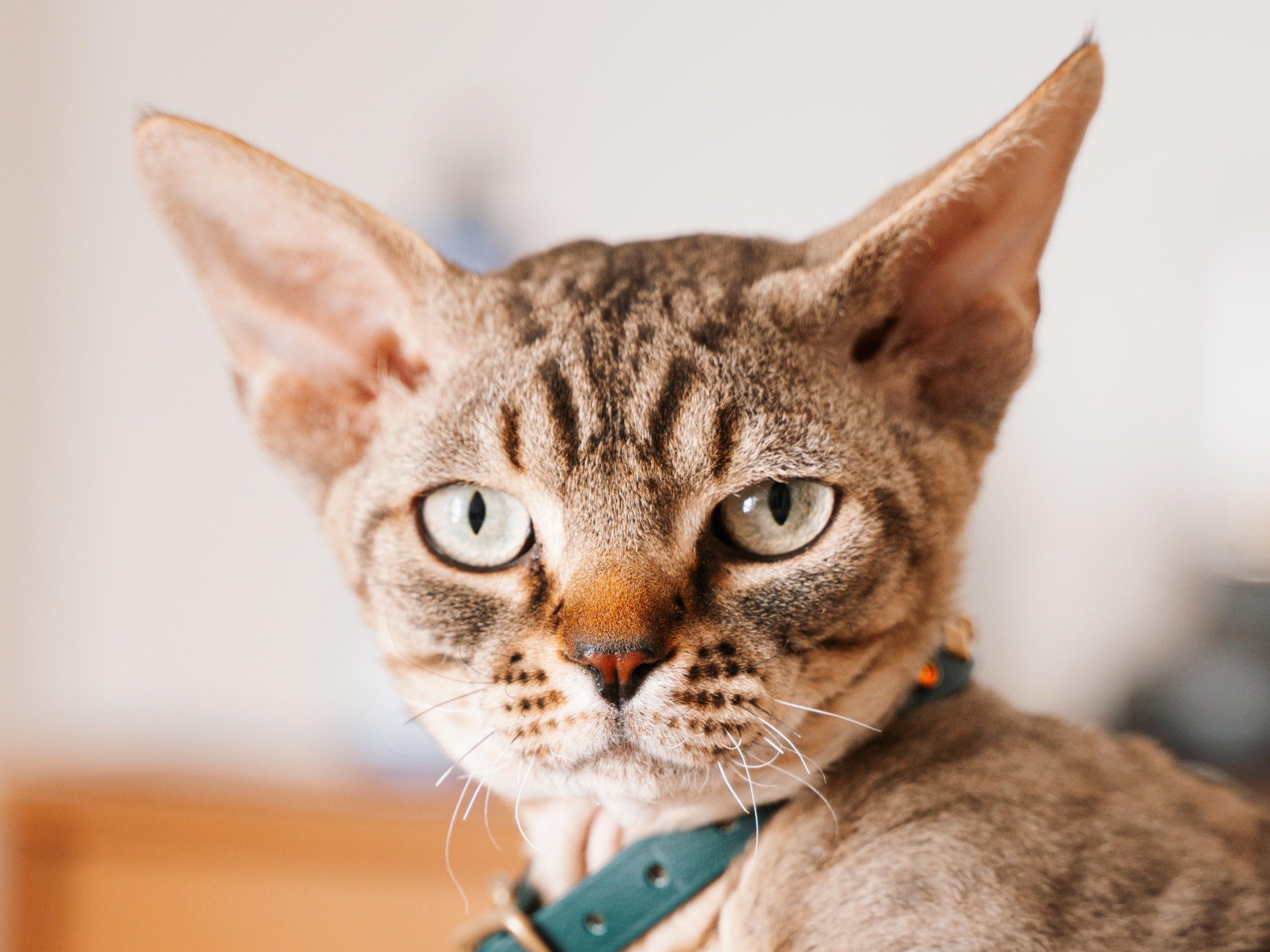The Enchanting History of the Devon Rex Cat Breed
Trout, owned by @ourmountaintails
The Devon Rex cat, with its elfin face, large ears, and curly coat, is one of the most distinctive and beloved cat breeds. Its unique appearance and charming personality have captivated cat enthusiasts worldwide. But where did this intriguing breed come from? Let’s delve into the fascinating history of the Devon Rex cat.
The Birth of a New Breed
The story of the Devon Rex begins in the 1960s in Buckfastleigh, Devon, England. A local cat lover, Beryl Cox, discovered a curly-coated stray tomcat in an abandoned tin mine. This tomcat, named Kirlee, mated with Beryl's domestic short-haired cat, producing a litter of kittens. Among them was a curly-coated kitten, which Beryl named Kirlee, after his father.
Initially, Kirlee was thought to be related to the Cornish Rex, a breed discovered in Cornwall in the 1950s with a similar curly coat. However, breeding experiments revealed that Kirlee's curly coat was due to a different genetic mutation. Thus, the Devon Rex was recognized as a distinct breed, separate from the Cornish Rex.
Establishing the Breed
To establish the Devon Rex as a breed, Kirlee was bred with various other cats, including domestic short-hairs, Siamese, and British Shorthairs. This breeding program aimed to enhance the breed's gene pool and ensure the distinctive curly coat and unique physical features were passed on to future generations.
The Devon Rex gained recognition in Britain in the 1970s and soon caught the attention of cat fanciers in the United States. The breed was officially recognized by The International Cat Association (TICA) in 1979 and by the Cat Fanciers' Association (CFA) in 1983.
Distinctive Features
The Devon Rex's most striking feature is its curly coat, caused by a genetic mutation affecting the hair follicles. Unlike the Cornish Rex, which has a uniform wave, the Devon Rex's coat is more varied, with loose curls and a soft, suede-like texture. This breed's coat can come in various colors and patterns, adding to its appeal.
Another notable feature is the Devon Rex's large, bat-like ears, which contribute to its pixie-like appearance. The breed also has a slender, muscular body, long legs, and a distinctive wedge-shaped head with prominent cheekbones and large, expressive eyes.
Personality and Temperament
The Devon Rex is known for its playful, affectionate, and mischievous personality. These cats are highly social and enjoy being the center of attention. They are often described as "dog-like" due to their loyalty and tendency to follow their owners around the house.
Devon Rex cats are also intelligent and curious, often finding ways to entertain themselves and their human companions. Their playful nature makes them great pets for families, and they tend to get along well with children and other animals.
The Devon Rex Today
Today, the Devon Rex continues to be a popular breed among cat enthusiasts. Its unique appearance and endearing personality have earned it a special place in the hearts of cat lovers around the world. Breed clubs and organizations dedicated to the Devon Rex work tirelessly to promote and protect the breed, ensuring its continued health and vitality.
In recent years, the breed has also gained popularity in cat shows, where its distinctive looks and charming demeanor often win over judges and spectators alike. The Devon Rex's journey from a stray cat in Devon to a beloved breed is a testament to the power of genetics and the enduring appeal of our feline friends.
Conclusion
The history of the Devon Rex cat breed is a tale of serendipity and scientific discovery. From its humble beginnings in a Devonshire tin mine to its recognition as a distinct and cherished breed, the Devon Rex has come a long way. With its unique appearance, playful personality, and loving nature, the Devon Rex is truly a gem in the world of cats. Whether you're a seasoned cat owner or a potential pet parent, the Devon Rex is sure to bring joy and companionship into your life.

